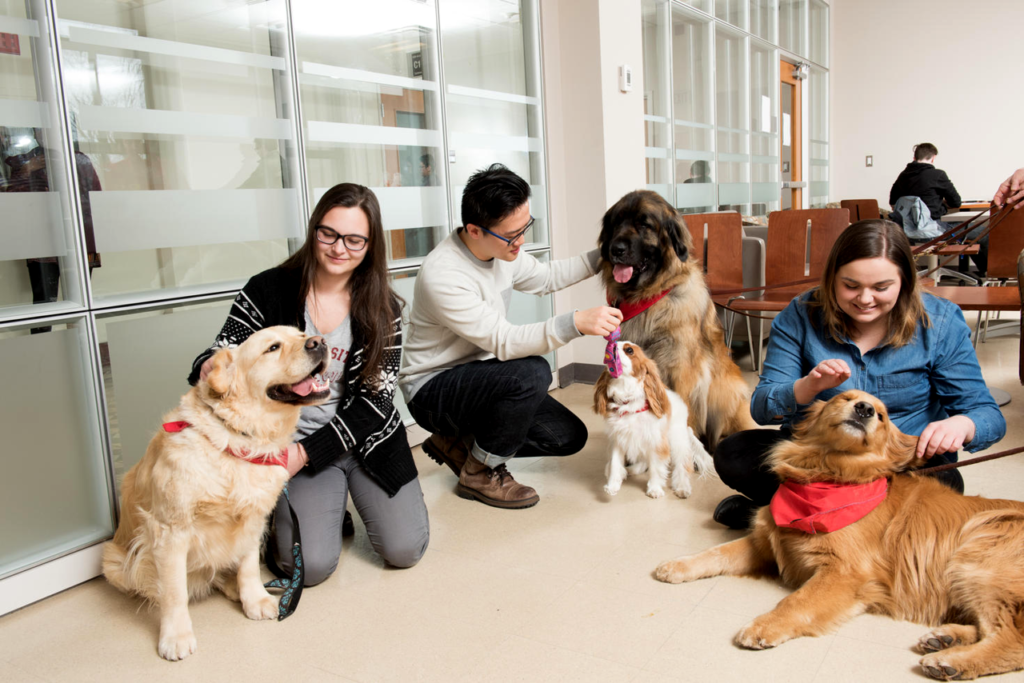
Exploring Alternative Therapies for Pet Health
As pet owners, ensuring the health and well-being of our beloved companions is paramount. While traditional veterinary care plays a vital role in maintaining their health, many pet owners are turning to alternative therapies to complement conventional treatments. These alternative approaches, rooted in holistic and natural principles, offer a unique perspective on pet healthcare. In this article, we will delve into the world of alternative therapies for pets, exploring various modalities, their benefits, and how they can contribute to the overall health and happiness of our furry friends.
Read More: How to Manage Separation Anxiety in Pets
Exploring Alternative Therapies for Pet Health

Alternative therapies encompass a diverse range of practices and treatments that diverge from conventional veterinary medicine. These therapies emphasize a holistic approach to pet health, addressing not only physical ailments but also emotional and energetic imbalances. Let’s explore some of the most commonly used alternative therapies for pets:
Acupuncture
Originating from Traditional Chinese Medicine, acupuncture involves the strategic insertion of thin needles into specific points on the body known as acupoints. This practice aims to stimulate the flow of Qi, or life force energy, along meridians to restore balance and promote healing. In pets, acupuncture is often used to alleviate pain, manage chronic conditions, and enhance overall well-being.
Herbal Medicine
Herbal medicine harnesses the therapeutic properties of plants to support various aspects of pet health. Different herbs offer a range of benefits, from reducing inflammation and boosting the immune system to aiding digestion and promoting relaxation. Herbal remedies can be administered in various forms, including teas, tinctures, and dietary supplements, tailored to meet the individual needs of each pet.
Chiropractic Care
Chiropractic care focuses on the alignment of the spine and musculoskeletal system to improve nerve function, mobility, and overall health. By gently manipulating the spine, joints, and soft tissues, chiropractors can alleviate pain, restore proper biomechanics, and enhance the body’s innate ability to heal. This therapy is particularly beneficial for pets with musculoskeletal issues, mobility problems, or sports injuries.
Massage Therapy
Massage therapy involves the manual manipulation of muscles and soft tissues to promote relaxation, reduce tension, and improve circulation. By applying gentle pressure and rhythmic strokes, massage therapists can alleviate muscle stiffness, enhance flexibility, and promote a sense of calm and well-being in pets. This hands-on approach also fosters bonding between pet and owner, strengthening their relationship.
Aromatherapy
Aromatherapy utilizes the aromatic essences of plants, known as essential oils, to promote physical and emotional healing. When diffused or applied topically, essential oils can have powerful effects on pets, such as calming anxiety, relieving pain, and repelling pests. However, it’s essential to use caution and consult with a qualified aromatherapist to ensure the safe and appropriate use of essential oils in pets.
Homeopathy
Homeopathy is based on the principle of “like cures like,” using highly diluted substances to stimulate the body’s innate healing response. By addressing the underlying energetic imbalances that contribute to illness, homeopathic remedies can effectively treat a wide range of acute and chronic conditions in pets. This gentle yet potent form of therapy is particularly well-suited for sensitive animals and those with chronic health issues.
Benefits of Alternative Therapies for Pets

Integrating alternative therapies into a pet’s healthcare regimen offers numerous potential benefits:
Holistic Approach
Alternative therapies focus on treating the whole animal, taking into account their physical, emotional, and energetic well-being. By addressing underlying imbalances, these therapies promote overall health and vitality in pets.
Minimal Side Effects
Many alternative therapies have minimal side effects compared to traditional medications, making them safer and more tolerable for pets, especially those with sensitivities or chronic conditions.
Complementary to Conventional Medicine
Alternative therapies can complement traditional veterinary care, providing additional support for pets undergoing treatment or managing chronic conditions. By combining different modalities, pet owners can create a comprehensive healthcare plan tailored to their pet’s individual needs.
Improved Quality of Life

Alternative therapies such as acupuncture, massage, and chiropractic care can improve mobility, alleviate pain, and enhance the bond between pet and owner. By enhancing physical comfort and emotional well-being, these therapies contribute to a better quality of life for pets.
Read More: Pet Therapy in Elder Care
FAQs
- Can alternative therapies replace traditional veterinary care? Alternative therapies should not replace traditional veterinary care but can complement it to provide additional support for your pet’s health.
- Is acupuncture safe for all pets? Acupuncture is generally safe for pets when performed by a qualified veterinarian trained in acupuncture techniques.
- How do I find a qualified holistic veterinarian? You can search online for holistic veterinarians in your area or ask for recommendations from other pet owners or local animal organizations.
- Are there any risks associated with herbal medicine for pets? While herbal medicine can be safe and effective when used properly, it’s essential to consult with a veterinarian knowledgeable in herbal remedies to ensure appropriate dosing and administration.
- Can I administer aromatherapy to my pet at home? Some essential oils can be used safely with pets, but it’s crucial to research proper dilution rates and avoid oils that may be toxic to animals. Consulting with a veterinarian trained in aromatherapy is recommended.
The Final Words
Exploring alternative therapies for pet health opens up a world of possibilities for pet owners seeking natural and holistic approaches to care. From acupuncture and herbal medicine to chiropractic care and aromatherapy, there are numerous modalities available to support your pet’s well-being. By working with a qualified holistic veterinarian, you can develop a personalized healthcare plan that addresses your pet’s individual needs and promotes optimal health and vitality.








One Comment